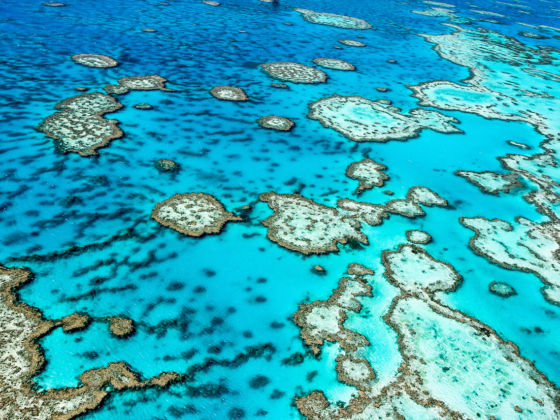THE GREAT BARRIER REEF IS ONE of the Wonders of the Natural World. But it might not be around much longer: a recent study by an Australian task force has found that 93% of the reefs in the Great Barrier Reef have been affected by coral bleaching, which puts the coral at a great risk of dying.
Bleaching is a process that has affected reefs all over the world in recent years: in short, coral depends on an algae that it has a symbiotic relationship with to survive. If stress is put on the coral — whether it’s through a rise or fall in water temperature, or if a reef experiences pollution — the algae is expelled from the coral, causing the coral to turn white (hence the name “bleaching”), which makes it more likely to die. If the bleaching is severe enough, it can kill off entire reefs, causing mass destruction to the ocean’s most important ecosystem. The cause of the bleaching is likely due to man-made climate change, both from the rise in water temperatures and from pollution.
